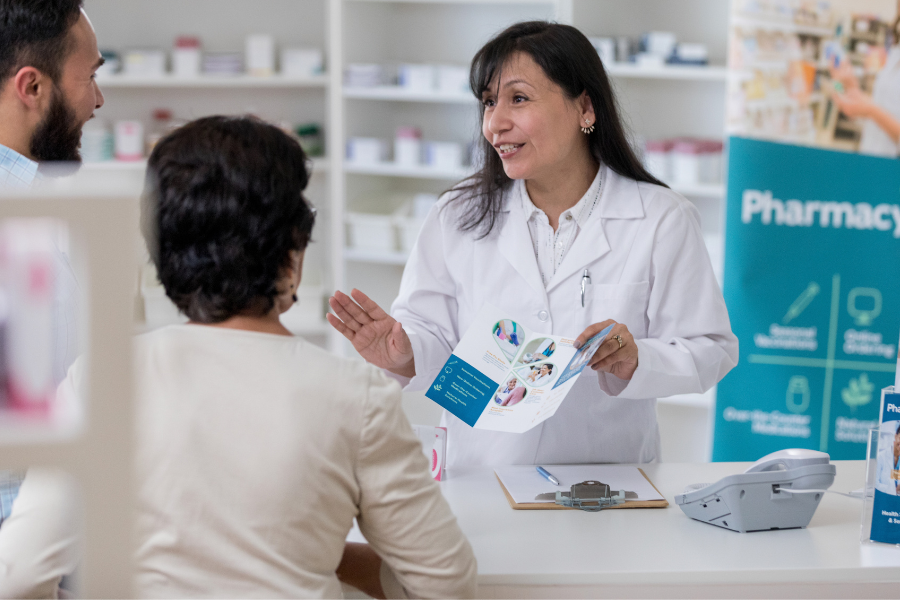Introduction to Independent Pharmacy Marketing
Marketing strategies for independent pharmacies are essential for attracting new customers, enhancing community engagement, and differentiating from larger chain competitors. Effective marketing initiatives encompass digital marketing, community outreach, patient education, and service promotion to foster patient loyalty and business growth. This comprehensive guide explores key marketing strategies, implementation tactics, benefits, and considerations for independent pharmacies. For more detailed information, you can visit pafikabminahasaselatan.org.
Understanding the Independent Pharmacy Landscape
Challenges and Opportunities
Independent pharmacies face challenges such as competition from chain pharmacies, reimbursement pressures, and evolving healthcare regulations. However, they also have opportunities to leverage personalized patient care, community relationships, and niche service offerings to differentiate their pharmacy services and attract loyal customers.
Importance of Marketing
Marketing plays a crucial role in raising awareness, increasing patient retention, and driving business growth for independent pharmacies. Strategic marketing initiatives enhance visibility, showcase unique pharmacy services, and build trust with patients and healthcare providers in the local community.
Key Marketing Strategies for Independent Pharmacies
Establishing a Strong Online Presence
- Website Development: Create a professional website that highlights pharmacy services, staff expertise, patient resources, and contact information. Optimize the website for search engines (SEO) to improve online visibility and attract local customers searching for pharmacy services.
- Social Media Engagement: Utilize social media platforms (e.g., Facebook, Instagram, Twitter) to engage with the community, share health tips, promote pharmacy services, and interact with patients. Social media presence enhances brand awareness, fosters patient relationships, and drives online traffic to the pharmacy website.
Community Outreach and Engagement
- Health and Wellness Events: Host health fairs, wellness workshops, and community events to educate the public on healthcare topics, medication management, and preventive care. Participate in local health initiatives, collaborate with community organizations, and sponsor local events to strengthen community ties.
- Partnerships with Healthcare Providers: Collaborate with physicians, clinics, and healthcare facilities to establish referral networks, promote collaborative care, and enhance patient access to pharmacy services. Build relationships with healthcare providers to gain patient referrals and expand pharmacy service offerings.
Patient Education and Counseling
- Medication Therapy Management (MTM): Offer MTM services to optimize medication therapy, improve patient outcomes, and promote medication adherence. Provide personalized medication counseling, patient education materials, and adherence support to empower patients in managing their health.
- Health Literacy Programs: Develop health literacy initiatives, workshops, and patient education seminars to educate patients on medication safety, chronic disease management, and healthy lifestyle choices. Empower patients with knowledge to make informed healthcare decisions and improve health outcomes.
Promotional Campaigns and Loyalty Programs
- Discounts and Special Offers: Create promotional campaigns, seasonal discounts, and loyalty programs (e.g., rewards points, prescription club memberships) to incentivize repeat business and reward patient loyalty. Promotions encourage patient retention, increase prescription fills, and enhance pharmacy revenue.
- Email Marketing: Implement email newsletters, medication reminders, and promotional updates to communicate with patients, share pharmacy news, and promote health-related content. Email marketing campaigns maintain patient engagement, drive store traffic, and encourage patient participation in pharmacy services.
Implementing Effective Marketing Tactics
Data-Driven Marketing Strategies
Utilize pharmacy management software and customer relationship management (CRM) tools to analyze patient demographics, medication purchasing behaviors, and market trends. Data-driven insights inform targeted marketing campaigns, personalized patient communications, and strategic business decisions to optimize marketing effectiveness.
Monitoring and Adapting Strategies
Regularly evaluate marketing performance metrics, patient feedback, and campaign outcomes to assess the effectiveness of marketing strategies. Monitor online reviews, social media engagement, and patient satisfaction surveys to identify areas for improvement and adapt marketing tactics to meet patient needs and preferences.
Compliance and Ethical Considerations
Adhere to healthcare regulations, patient privacy laws (e.g., HIPAA), and pharmacy practice standards when implementing marketing strategies. Maintain ethical marketing practices, disclose relevant information to patients, and prioritize patient confidentiality in all promotional activities and patient communications.
Benefits of Effective Marketing for Independent Pharmacies
Enhanced Patient Engagement
Effective marketing initiatives foster patient engagement, build trust, and strengthen patient-pharmacist relationships. Patients value personalized care, health education, and convenient pharmacy services promoted through marketing efforts, leading to increased patient satisfaction and loyalty.
Increased Pharmacy Visibility
Strategic marketing enhances pharmacy visibility in the local community and online marketplace. Improved brand recognition, positive patient experiences, and word-of-mouth referrals attract new customers, expand patient base, and differentiate independent pharmacies from larger chain competitors.
Business Growth and Sustainability
Successful marketing strategies drive pharmacy revenue growth, increase prescription sales, and enhance overall business profitability. By attracting new customers, retaining existing patients, and promoting value-added services, independent pharmacies achieve sustainable growth and long-term success in competitive healthcare markets.
Conclusion
Effective marketing strategies are essential for independent pharmacies to thrive, differentiate from competitors, and enhance patient care. By leveraging digital marketing, community engagement, patient education, and promotional campaigns, pharmacies strengthen patient relationships, drive business growth, and achieve positive health outcomes. Embrace marketing as a cornerstone of pharmacy practice innovation, community involvement, and patient-centered care in independent pharmacy settings.



